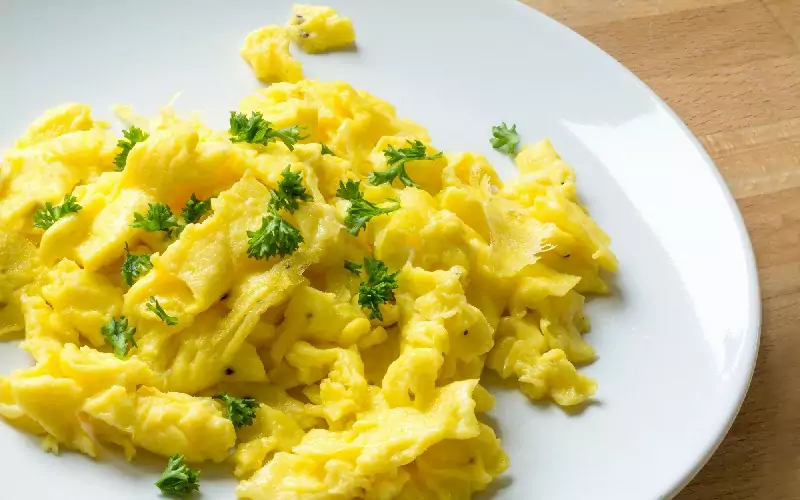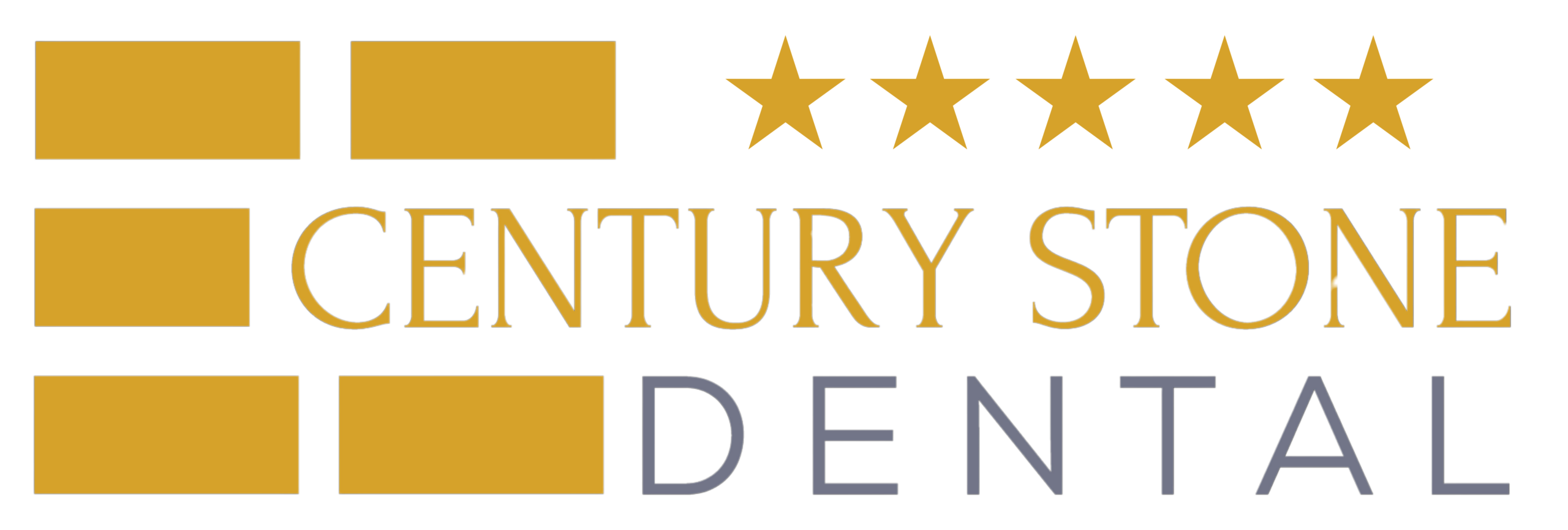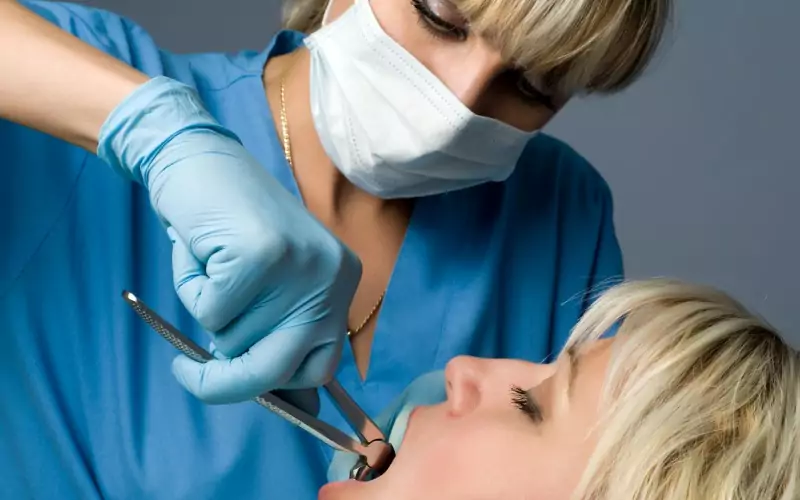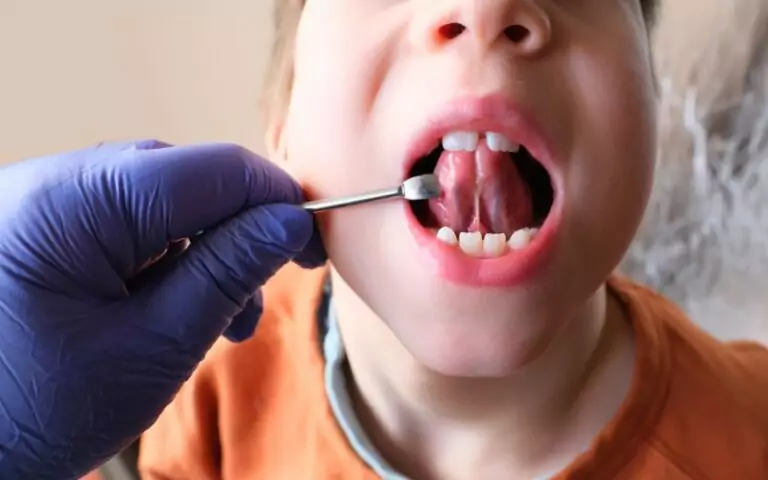If you have had a tooth extracted, whether it be a wisdom tooth or another which required removal for your wellbeing, taking care of the extraction site afterwards is crucial. Proper post-operative care, including dietary choices and eating the right foods, helps ensure a quick recovery.
Below is a guide to help you choose foods which won’t irritate or injure the extraction site, and will support good nutrition to promote healing.
Table of Contents
ToggleFoods to Avoid
Firstly, it is important to know what foods to avoid, as these will aggravate the area and delay healing.
Hard and Crunchy Foods
Hard or crunchy foods, such as nuts, seeds, popcorn, and hard candies, may scratch or damage the extraction site.
Crumbling Foods
Be sure to avoid crumbling foods that may allow particles to become trapped in the healing socket. These include pie crusts, cookies, flaky bread, and others.
Spicy and Acidic Foods
Spicy and acidic foods irritate sensitive, healing gums. Avoid hot sauces, spices, citrus fruits, and acidic beverages to prevent discomfort and potential complications.
Chewy and Sticky Foods
Foods that are chewy or sticky, such as gum, caramel, and candies can get lodged in the extraction site, leading to infection and delaying healing.
Very Hot or Cold Foods
Very hot foods can dislodge the blood clot and irritate the sensitive gum area. Extreme cold and temperature changes can also negatively impact blood vessels, potentially slowing the healing process.
Foods to Choose
Select foods that won’t injure or irritate the healing gum area, and choose ones that will actively help promote healing.
Soft Foods
Opt for soft, drinkable or easy-to-chew foods during the initial days after the extraction. Mashed potatoes, smoothies, pureed soups, yogurt, and well-cooked pasta are unlikely to cause irritation or injury.
When consuming drinks and smoothies, however, don’t use a straw, as the suction can dislodge the blood clot in the extraction site.

Nutritious Foods
Proper nutrition is essential when recovering to support your healing process and minimize the risk of complications. Nutrient-rich foods, including those high in vitamins A, C, D, and calcium, help with tissue regeneration and overall oral health. Aim for a well-balanced diet within the restrictions of maintaining a soft food diet.
Protein-rich foods also help with tissue repair and healing. Scrambled eggs, smoothies with protein powder, or, after the initial and critical first couple of days, finely shredded chicken or fish are good, soft sources of protein to support your body in rebuilding tissues.
Fruits and vegetables are rich in critical nutrients, but blend or cook them first to make them easier to eat. Choosing a variety of fruits and vegetables such as mashed bananas, blended berries, mango, or melons, pureed spinach, avocado, applesauce, and well-cooked carrots ensures your diet is rich in vitamins, minerals, and antioxidants. Blended soups are a good way to get enough vegetables. Smoothies with spinach, berries, and yogurt are good choices, too. However, be careful to avoid any seeds that could become stuck in the healing socket.
Dairy products like milk, yogurt, and cheese are rich in calcium and vitamin D. Choose soft or blended varieties to avoid discomfort or prevent irritation of the gums.
Stay Hydrated
Another important element in healing is staying well hydrated, to promote saliva production and avoid dehydration which can impede the healing process. While soups and smoothies offer some hydration, be sure to also drink plenty of water.

Medications
Make sure you discuss any medications you take with your dentist and physician before the extraction, and ask about taking them afterwards. In most cases, you can – and should – take your medications normally, but it is essential to confirm this.
How Long Do You Need To Be Careful While Eating?
Generally, you should maintain a soft food diet for the initial 24 to 48 hours and gradually reintroduce regular foods. If irritation occurs when reintroducing a food, avoid it until you have healed more fully. Your dentist will provide you with more specific guidance for your particular situation; it is important to follow these exactly.
Symptoms of Complications
Although complications following tooth extractions are rare, you should be aware of symptoms of any potential issues. If you start to experience persistent and severe pain, excessive bleeding, swelling, or any indications of infection around the extraction site, contact your dentist immediately. In addition, if you notice numbness or tingling, immediate dental attention may be necessary, too. Updating your dentist about any concerns as they arise ensures they are addressed promptly, to foster better healing.
If you have had an extraction and are experiencing any complications, contact Century Stone Dental. We will answer any questions you have. If it is an emergency, let us know and we can schedule an urgent appointment.
Century Stone Dental offers tooth extractions, including wisdom teeth removal, conveniently at our friendly dental clinic. For anxious patients and to make the process more pleasant, we provide sedation options. Contact us today; don’t delay seeking treatment if you suspect you may need an extraction.
Key Take Aways
After a tooth extraction, it’s important to eat the right foods for a quick recovery. Here’s a condensed guide:
Foods to Avoid
- Hard and Crunchy: Nuts, seeds, popcorn.
- Crumbling Foods: Pie crusts, cookies.
- Spicy and Acidic: Hot sauces, citrus fruits.
- Chewy and Sticky: Gum, caramel.
- Very Hot or Cold: Can irritate or damage the extraction site.
Foods to Choose
- Soft Foods: Mashed potatoes, smoothies, pureed soups, yogurt.
- Nutritious Foods: Foods high in vitamins A, C, D, calcium, and protein. Include soft fruits, vegetables, and dairy.
Commonly Asked Questions
How can I ensure proper nutrition after a tooth extraction?
Focus on nutrient-rich foods that promote healing, including those high in vitamins A, C, D, and calcium. Incorporate protein-rich foods like scrambled eggs, smoothies with protein powder, and finely shredded chicken or fish. Fruits and vegetables should be blended or cooked to ease consumption. Dairy products, especially those rich in calcium and vitamin D, should be soft or blended.
Can I take my medications after a tooth extraction?
Discuss any medications with your dentist and physician before the extraction and inquire about taking them afterward. In most cases, you can continue your medications as normal, but it’s essential to confirm.
He’s completed a number of additional courses to best serve his patients and be able to educate them too. No matter your age or dental condition Dr. Sims can assist you in a professional manner and loves answering any of your questions or concerns.
- Can Tongue Tie Grow Back? - July 10, 2024
- What To Expect After Tongue-Tie Release Surgery - May 24, 2024
- Does Tongue Tie Affect Speech? - April 26, 2024





